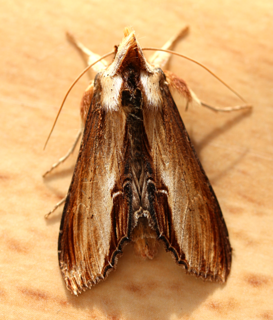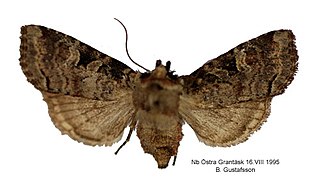
Eagle is the common name for many large birds of prey of the family Accipitridae. Eagles belong to several groups of genera, not all of which are closely related. Most of the 60 species of eagle are from Eurasia and Africa. Outside this area, just 14 species can be found—2 in North America, 9 in Central and South America, and 3 in Australia.
Binomial nomenclature, also called binominal nomenclature or binary nomenclature, is a formal system of naming species of living things by giving each a name composed of two parts, both of which use Latin grammatical forms, although they can be based on words from other languages. Such a name is called a binomial name, a binomen, binominal name or a scientific name; more informally it is also called a Latin name. The first part of the name – the generic name – identifies the genus to which the species belongs, while the second part – the specific name or specific epithet – identifies the species within the genus. For example, humans belong to the genus Homo and within this genus to the species Homo sapiens. Tyrannosaurus rex is probably the most widely known binomial. The formal introduction of this system of naming species is credited to Carl Linnaeus, effectively beginning with his work Species Plantarum in 1753. But Gaspard Bauhin, in as early as 1623, had introduced in his book Pinax theatri botanici many names of genera that were later adopted by Linnaeus.

In zoological nomenclature, a type species is the species name with which the name of a genus or subgenus is considered to be permanently taxonomically associated, i.e., the species that contains the biological type specimen(s). A similar concept is used for suprageneric groups called a type genus.
Lenka Peterson is an American theater, film, and television actress.

Warren Albert Stevens was an American stage, screen, and television actor.
Star Tonight, an American television anthology series, aired on ABC from February 1955 to August 1956. It consisted of 80 total episodes, 30 from 1955 and 50 from 1956. Each episode was a self-contained story, usually adapted from famous plays, short-stories or novels by some of the writers of the day.
Blepharidium is a monotypic genus of flowering plants in the Rubiaceae family. The genus contains only one species, viz. Blepharidium guatemalense, which is native to Guatemala, Honduras and southern Mexico. Older works might mention two species.

In biological classification, taxonomic rank is the relative level of a group of organisms in a taxonomic hierarchy. Examples of taxonomic ranks are species, genus, family, order, class, phylum, kingdom, domain, etc.

Cuculliinae is one of the larger subfamilies of moths in the family Noctuidae.
The Xylenini are a mid-sized tribe of moths in the Hadeninae subfamily. There is some dispute about this tribe. Some resources have these genera listed under subfamily Cuculliinae instead, or upranked them to a distinct subfamily Xyleninae.
Our Town is a 1955 episode of the American series Producers' Showcase directed by Delbert Mann and starring Frank Sinatra, Paul Newman and Eva Marie Saint. The episode is a musical adaption of Thornton Wilder's 1938 play Our Town, with songs by Jimmy van Heusen and Sammy Cahn. It was Sinatra's only performance in a dramatic role specifically for television until Contract on Cherry Street in 1977.
Hillia is a genus of flowering plants in the family Rubiaceae. It has 24 species. All are indigenous to tropical America.
Hillieae is a tribe of flowering plants in the Rubiaceae family and contains about 29 species in 3 genera. Its representatives are found in tropical America. The tribe is sometimes included in its sister tribe Hamelieae.
Peg Hillias was an American actress of stage, film and television. She may be best known for her role as Eunice Hubbell, neighbor to Stanley and Stella Kowalski in A Streetcar Named Desire, which she played on Broadway and reprised in the film version, starring Vivien Leigh and Marlon Brando. She died at age 45 from undisclosed causes in Kansas City, Missouri.
That Night! is a 1957 American drama film directed by John Newland and written by Jack Rowles and Robert Wallace. The film stars John Beal, Augusta Dabney, Shepperd Strudwick, Rosemary Murphy and Malcolm Brodrick. The film was released on August 22, 1957 by Universal-International.

The Wayward Girl is a 1957 American drama film directed by Lesley Selander, written by Houston Branch and Frederick Louis Fox, and starring Marcia Henderson, Peter Walker, Katherine Barrett, Whit Bissell, Rita Lynn and Peg Hillias. It was released on September 22, 1957, by Republic Pictures.
Hillia Kobblah is a Ghanaian footballer who plays as a midfielder for the Ghana women's national football team. She was part of the team at the 2014 African Women's Championship and at the 2015 African Games where she scored against Cameroon. At the club level, she played for Faith Ladies in Ghana.








